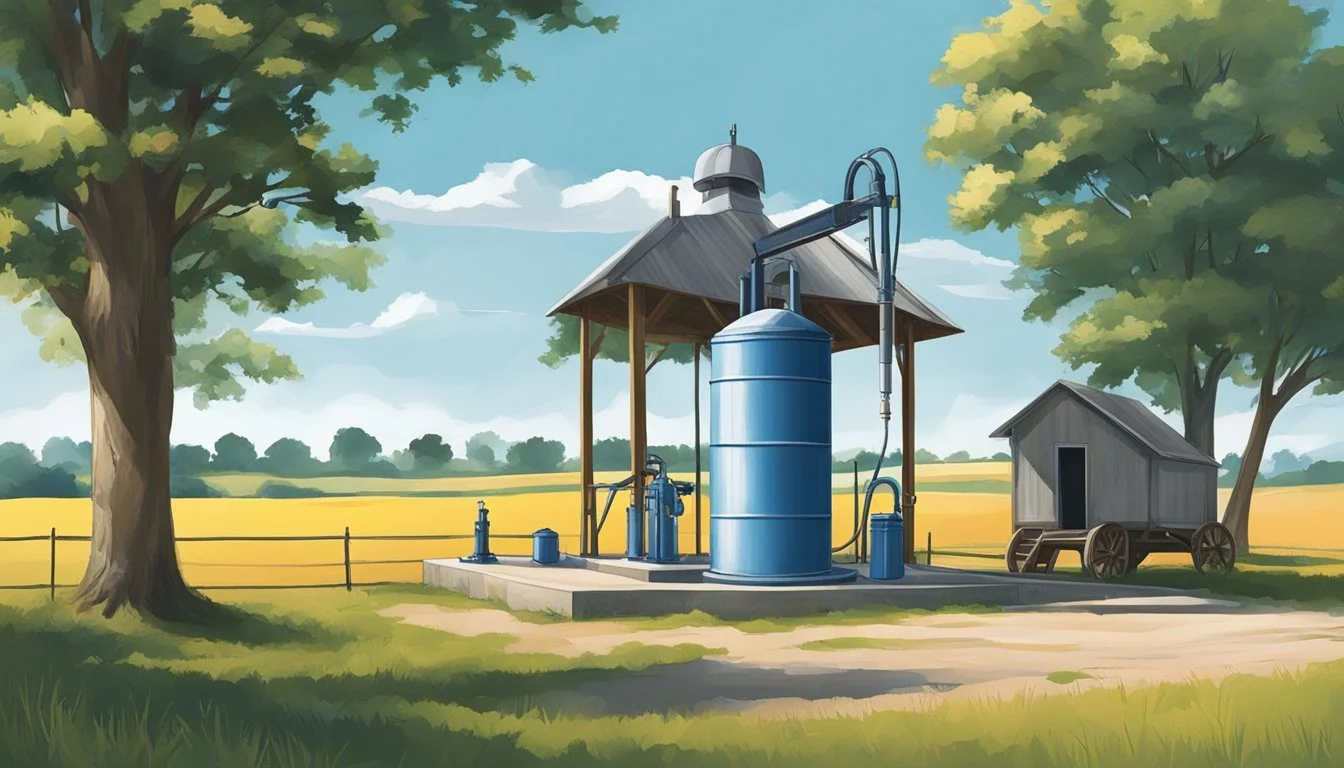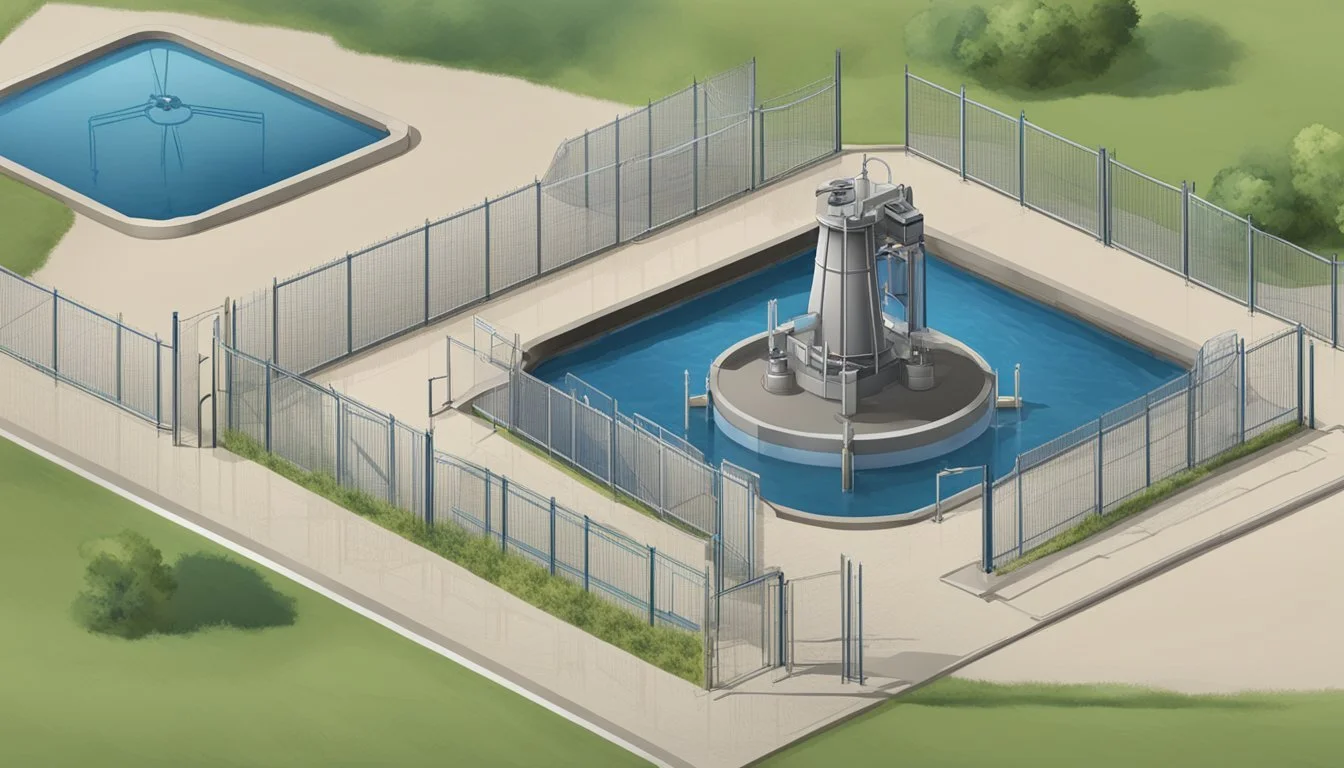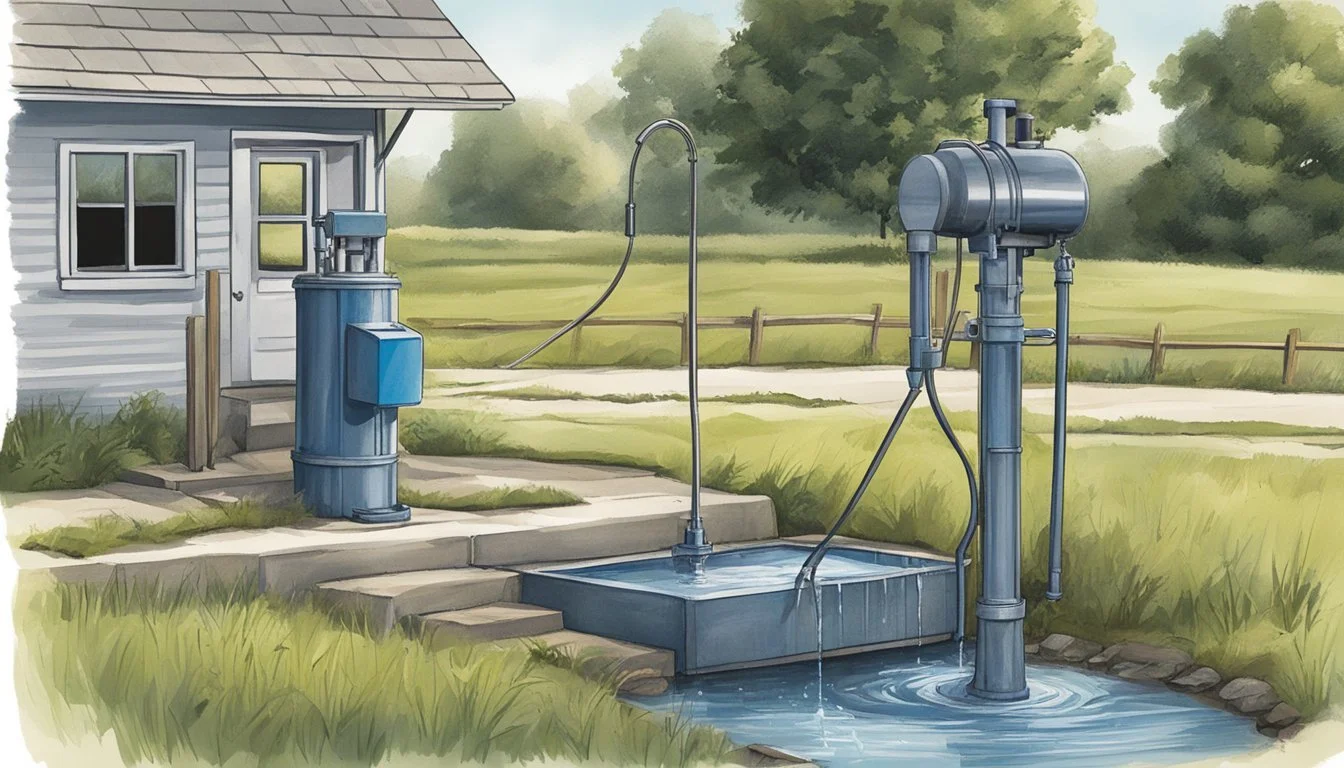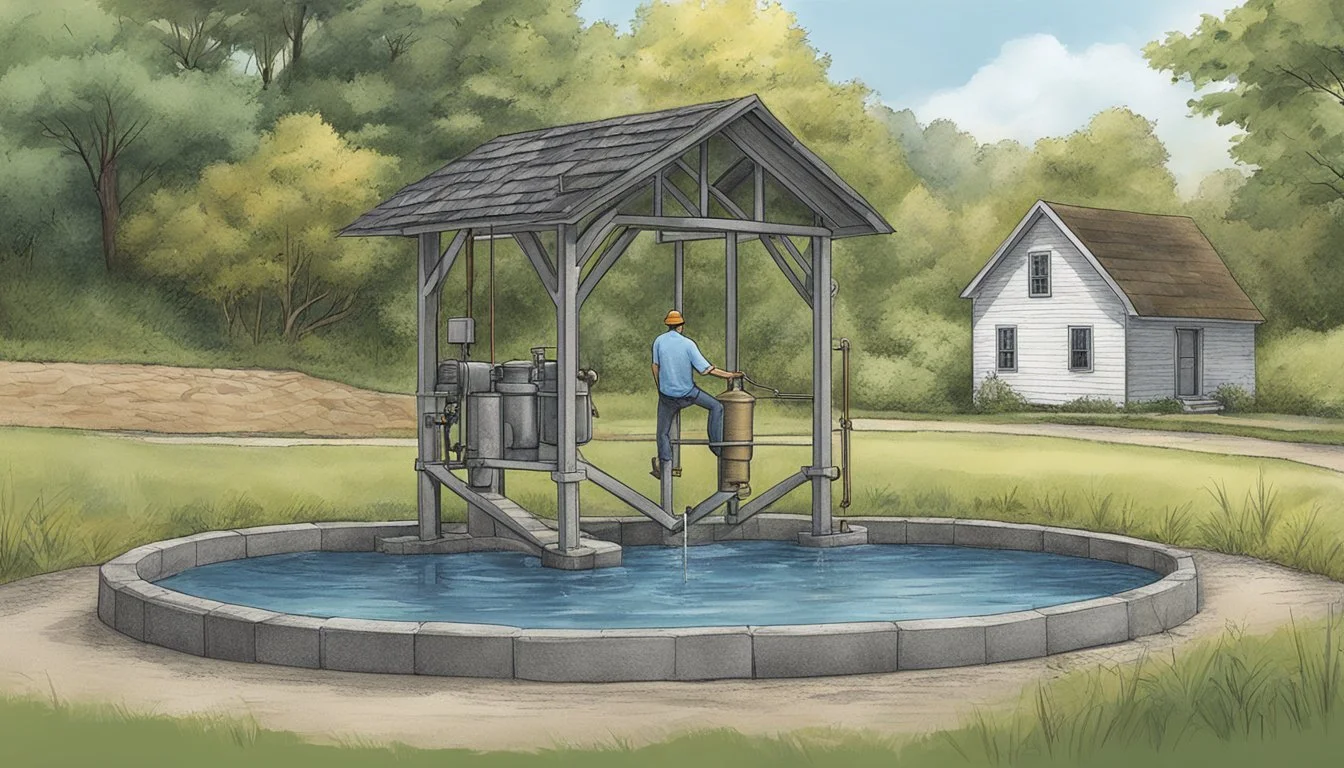Iowa Water Well Regulations
Understanding State Compliance Standards
The state of Iowa places significant emphasis on the regulation of water supply wells to maintain public health and environmental protection. Iowa water well regulations are tailored to ensure that both private and public water supplies meet the required safety standards. These regulations entail mandatory periodic testing of water systems, which helps in confirming the potability of water and safeguarding consumers from unsafe water consumption. Operators of water supply wells are also obliged to report to the Iowa Department of Natural Resources to verify and document the system's water safety.
Iowa's well owner requirements are clearly delineated under state law. These requirements cover the breadth of water well ownership including the responsibilities of certified well contractors, types of wells permitted, and the specifics of well construction and pump installation rules. The state also provides comprehensive resources for well owners and prospective well owners, offering guidance on the legal and practical aspects of well services and water system management.
Moreover, the database managed by the Iowa Department of Natural Resources acts as a repository for information on private wells in the state. This includes records of new well construction permits and well construction logs. These efforts by the Iowa DNR reflect the state's commitment to the management of its water resources, emphasizing the importance of regulatory compliance for the protection of its citizens and natural reserves.
Regulatory Framework
Iowa's approach to water well regulation is multifaceted, involving various guidelines and agencies that ensure the safety and management of the state's water resources. Key to understanding this framework is recognizing the roles of both the Iowa Department of Natural Resources (DNR) and the state legislation in shaping these regulations.
Iowa DNR and Water Regulations
The Iowa Department of Natural Resources (DNR) is primarily responsible for overseeing the state's water quality programs, including the regulation of water supply wells. The department requires periodic testing of water systems to ascertain their safety. Furthermore, the Iowa DNR mandates the notification of water users if the water quality does not meet safety standards. The documentation and verification process relates to the safety of the water system, which must comply with DNR Water Supply Operations.
Well Categories: According to the Iowa DNR, water supply wells fall into four general categories.
Testing Requirements: It is essential to test for coliform bacteria and nitrates annually. Testing for arsenic is advised at least once during the well’s lifespan, with additional tests based on local geology and land use.
State of Iowa Regulations
The State of Iowa statutes and administrative rules further refine the regulations that govern nonpublic water supply wells. These are outlined in regulations like Chapter 49 Nonpublic Water Supply Wells, and they specify applicability to various wells constructed for domestic, commercial, or industrial use, among others.
New Construction: A permit is required for new well construction, which can be obtained from a county permitting authority or the Iowa Department of Natural Resources.
Relevant Chapters: Regulatory amendments often occur, targeting ease of regulatory burdens or reflecting changes in state law, as seen in Iowa Administrative Rules ARC 6037C, which regulate public and private water supply systems through amendments like those to Chapters 9, 40, and 43, in addition to Chapter 49.
This framework endeavors to protect Iowa's water quality, ensuring sustainable use and management for residents and industries alike.
Water Well Standards and Construction
In Iowa, compliance with rigorous water well standards and securing the appropriate permits is crucial for ensuring that well construction yields a safe and sustainable water supply.
Certification of Well Contractors
In the state of Iowa, well contractors must be certified to ensure they have the expertise to construct wells safely and in accordance with state regulations. The certification process is designed to maintain high standards within the industry, thus safeguarding groundwater resources. Individuals seeking a contractor can verify their certification through the Iowa Department of Natural Resources.
Water Well Design and Casing
The design of a water well and the materials used for the well casing are significant for the overall durability and function of the well. High-quality construction materials must be used, and the well casing needs to be fully grouted to protect groundwater from contaminants. Detailed regulations on well design including specifications for diameter, materials, and installation protocols help maintain consistency and reliability in well construction practices.
Well Construction and Permit Process
For well construction in Iowa, a permit is mandated by law. The permitting process involves submitting a detailed plan of the well to ensure it meets all standards and regulations. For a new non-public (private) water well, a permit is required from either the county permitting authority or the Iowa Department of Natural Resources, or potentially both. A private well construction permit authorizes the pumping of up to 25,000 gallons per day without the need for a Water Allocation and Use Permit, which is necessary for larger quantities.
Groundwater and Aquifers
In Iowa, groundwater is a critical resource, relied upon for residential, agricultural, and industrial uses. The local geology plays a significant role in the quality and availability of these groundwater sources.
Groundwater Sources
Groundwater in Iowa is predominantly extracted from various aquifer systems. These natural underground reservoirs are replenished by precipitation and surface water that percolates through the soil. The Iowa Department of Natural Resources identifies seven major aquifer groups, all serving as vital groundwater sources for the state.
Aquifer Information
Aquifers in Iowa can be broadly classified into two categories: unconsolidated and bedrock aquifers. Unconsolidated aquifers consist of materials like sand and gravel, while bedrock aquifers include limestone, sandstone, and other consolidated rocks. Notably, the Jordan Aquifer, one of the most significant bedrock aquifers, provides large quantities of water across the state.
Local Geology Influence
The local geology influences the occurrence and movement of groundwater in Iowa. For example, regions with permeable materials like sand or gravel facilitate the movement of groundwater and are likely to have more abundant resources. In contrast, areas with less permeable layers of clay or shale will have different aquifer characteristics, affecting both water quality and quantity. The construction and location of water wells in the state are also directly impacted by the geological layers they encounter.
Private Water Supply Systems
In Iowa, private water supply systems encompass a range of wells and water quality concerns that residents must manage responsibly. These systems, not served by Public Water Systems, adhere to regulations designed to protect public health.
Individual and Private Wells
Construction and Location: Constructing a private water supply well requires adherence to specific guidelines to ensure safety and sustainability. The well should be sited away from potential contamination and built to surpass state construction standards.
Testing: Post-construction, the well water must undergo testing at least once to determine its safety for consumption.
Water Quality and Treatment
Standards and Oversight: While private wells are not subject to federal regulations like Public Water Systems, they fall under the purview of the Iowa DNR Private Well Program, which mandates water quality testing to protect against health risks.
Water Treatment Systems: Should tests reveal contaminants, installing a reliable water treatment system becomes imperative. These systems may range from simple filtration units to sophisticated processes depending on the contaminants present.
Maintenance: Regular maintenance of private wells and water treatment systems by certified contractors is crucial for the ongoing provision of safe drinking water.
Owners of private wells in Iowa are thus tasked with the responsibility of maintaining the integrity of their water supply, underpinned by the guidance and regulations established by the Iowa DNR Private Well Program.
Public Water Supply Protection
In Iowa, regulations ensure the safety and integrity of public water supplies. These rules are designed to safeguard both public supply wells and nonpublic water supplies from contamination and to ensure the provision of safe drinking water.
Public Supply Well Requirements
Public water supply wells are subject to stringent regulations set forth by the Iowa Department of Natural Resources. These requirements include, but are not limited to:
Location: Wells must be situated at a safe distance from potential sources of contamination.
Construction and Design: Wells must be constructed in a manner that prevents contaminants from entering the well.
Testing and Treatment: Regular testing is mandatory to identify any changes in water quality. When necessary, treatment processes must be implemented to remove contaminants.
Reporting: Accurate records of water quality tests and treatment actions must be maintained and reported as per state guidelines.
By adhering to these measures, public water supply wells can provide clean and safe drinking water to communities they serve.
Nonpublic Water Supply Management
Nonpublic water supply wells, while not serving the general public, still require proper management to prevent health risks. Here are the key management practices for nonpublic wells:
Maintenance: Routine inspection and upkeep are crucial to sustain the function and sanitation of the well.
Contamination Prevention: Measures must be taken to eliminate the risk of contaminant entry, such as proper sealing and setback from pollution sources.
Water Quality Monitoring: Although nonpublic wells may not be bound by the same testing frequencies as public wells, regular monitoring is recommended to ensure water safety.
Implementing these management practices helps in preserving the quality of nonpublic water supplies and safeguarding the health of those relying on them. Through vigilant protection protocols for both public and nonpublic water supplies, Iowa ensures the wellbeing of its residents.
Contaminants and Well Testing
Maintaining the purity of well water is essential for health and safety. Across Iowa, regulations require that private well owners frequently test their water to ensure it's free of harmful contaminants.
Testing for Water Purity
Testing well water regularly is critical to guarantee a safe drinking water supply. Well owners should test for a variety of contaminants, including nitrate, nitrates, arsenic, coliform bacteria, total coliform, and fecal coliform. The testing should be comprehensive, and for new wells, the Iowa Department of Natural Resources mandates a certified well contractor to conduct the initial examinations to certify the well's safety.
Nitrate: Should be well below the safe threshold of 10 mg/L.
Arsenic: Levels exceeding 10 µg/L are cause for concern and action.
Bacteria: Presence of coliform bacteria indicates potential contamination.
Addressing Contamination Risks
When contaminants are detected in well water, immediate action is necessary. For instance, persistent arsenic contamination requires installing treatment systems or seeking alternative water sources. Nitrate contamination is often addressed by identifying and removing the source, such as agricultural runoff, and by regular monitoring. Effective sanitization methods are crucial in eliminating harmful bacteria such as coliform and fecal coliform to prevent waterborne diseases. The Iowa Department of Public Health provides guidance on measures to mitigate these risks and ensure continuous access to clean, potable water.
Well Maintenance and Rehabilitation
Proper well maintenance and rehabilitation are critical for extending the lifespan of a water well and ensuring the safety of the groundwater. In Iowa, strict regulations govern these processes to protect environmental resources and public health.
Well Services and Renovation
Well services in Iowa are comprehensive efforts to maintain the operational efficiency and sanitary condition of water wells. Renovation activities often involve cleaning, repairing, and updating well components to meet current standards. Renovation is essential for preventing contamination and restoring a well's capacity. Regulations mandate that these actions be performed by certified well contractors, ensuring adherence to safety guidelines.
Key Renovation Considerations
Cleaning
Repair
Upgrades
Description
Removal of debris and sediments that can impair water quality.
Fixing structural damages to well casings, seals, and caps.
Installing modern systems for better well performance.
Well Plugging and Decommissioning
Well plugging is a critical process when a well is no longer in use or is being decommissioned. Proper plugging procedures, which involve sealing a well to prevent contamination of aquifers and groundwater supply, are mandated by Iowa law. Decommissioning ensures that abandoned or out-of-service wells do not become pathways for pollutants.
Plugging Requirements
Sealants
Records
Inspection
Importance
Quality materials must be used to prevent leaks.
Accurate documentation of plugging activities is necessary.
Verification that the plugging meets regulatory standards is required.
Professional Development and Resources
Professional development for certified well contractors in Iowa is essential to maintaining high standards in well construction and ensuring public health. Access to state-of-the-art research tools and databases supports contractors and labs in delivering safe drinking water.
Continuing Education for Contractors
Iowa mandates that all certified well contractors, including pump installers, participate in ongoing education to maintain their certifications. Contractors must accrue a specific number of Continuing Education Units (CEUs) during each renewal period. This requirement is in place to assure that contractors stay up to date with current industry standards, technologies, and regulations. The Iowa DNR recognizes the following to fulfill CEU criteria:
Contact Hours: A minimum number of contact hours must be obtained through state-approved educational programs.
Renewal Period: Contractors must fulfill their CEU requirements within their defined renewal period to continue offering their services legally in Iowa.
Drinking Water Labs and Research Tools
The state of Iowa is equipped with various resources designed to assist drinking water laboratories and well contractors. These include:
Drinking Water Lab: The State Hygienic Laboratory at the University of Iowa provides comprehensive analysis services for drinking water contaminants. It offers the expertise and resources necessary to ensure that the water meets health standards.
Research Tools:
The Iowa Geological Survey offers geological data and research support that assists in the planning and management of water resources.
The Iowa DNR Water Supply Engineering section provides technical assistance and reviews well designs and plans for compliance with regulations.
The GP6 Well Siting Tool is an innovative resource designed to help identify proper well locations away from contamination sources.
By leveraging these educational opportunities and tools, Iowa's certified well contractors remain well-informed and prepared to address water quality and compliance issues effectively.
Well Operation Permitting and Record Keeping
In Iowa, well operation and maintenance are closely regulated to ensure the safety and sustainability of water resources. The permitting process is meticulous, and detailed records must be maintained to track well activity and compliance.
Water Use and Allocation Permits
For operations drawing significant quantities of water, Water Use Permits are mandatory. The standard private well construction permit applies to those extracting less than 25,000 gallons per day. Above this threshold, a Water Allocation and Use Permit is required. Applicants seeking these permits go through the Iowa Department of Natural Resources, which ensures equitable distribution and responsible management of water resources.
Well Tracking and Data Systems
Iowa maintains a Private Well Tracking System (PWTS), a comprehensive platform that monitors private well construction, testing, renovation, and plugging activities. This system is part of the broader grants-to-counties program, which facilitates tracking and management of water wells across the state. The data collected is crucial for the Iowa Well Forecasting System, designed to predict water needs and availability, thereby informing water management and conservation efforts statewide.
Emergency Situations and Impact Management
Well owners in Iowa must navigate emergency situations with diligence to mitigate health risks and environmental impacts. Effective management during crises such as floods ensures both water safety and compliance with regulations.
Flood Response for Well Owners
Flood events pose significant threats to private wells, contaminating water supplies and jeopardizing public health. Iowa's Department of Natural Resources advises well owners to perform immediate water testing after floodwaters recede. During flood conditions, they should discontinue well water usage until tests confirm safety. Well components such as sealants and caps need thorough inspection for damage. If contamination is detected, disinfection protocols should be initiated promptly followed by a re-testing to ensure potability.
Dewatering and Monitoring Wells
Permanent dewatering wells and monitoring wells are critical for managing groundwater levels and tracking potential contaminants. Iowa DNR oversees the installation and maintenance, requiring well construction permits and regular reporting of well activity. Dewatering wells, specifically, are used to manage water levels in construction areas or places prone to high groundwater, helping to prevent structural damage. Monitoring wells, on the other hand, provide ongoing data for water quality assessments, alerting authorities and the public to any emergency situations that may arise from natural disasters or man-made incidents, safeguarding the environment and public health.
Frequently Asked Questions
When navigating the regulations for water wells in Iowa, owners and contractors face several critical considerations, from construction to permits, testing to abandonment. This section covers these key aspects to ensure compliance with state regulations.
What are the requirements for well construction in Iowa?
Iowa mandates that all new private water wells must be constructed by a certified well contractor and adhere to state standards to ensure the water source is safe and sustainable. The well must access a safe aquifer and be properly designed to avoid contamination.
How do I obtain a permit for drilling a well in Iowa?
Individuals seeking to drill a new well must acquire a permit from the county permitting authority, the Iowa Department of Natural Resources (DNR), or both. This ensures the well's placement and construction meet legal and environmental guidelines.
What is the minimum distance a well must be from a property line in Iowa?
Well owners must adhere to the state's setback requirements, which dictate the minimum distance wells should be from property lines, structures, and potential sources of contamination. These measures are in place to protect both the water supply and neighboring properties.
What is the procedure for water testing in Iowa for private wells?
Private well owners are encouraged to conduct regular water testing to ensure safety. The state recommends an annual check-up to screen for bacteria, nitrates, and other contaminants that could impact human health.
How are wells properly plugged and abandoned according to Iowa regulations?
When a well is no longer in use, it must be properly plugged and abandoned following Iowa's strict protocols. This process involves filling the well with specific materials to prevent contamination of the aquifer and protect the surrounding environment.
What are the costs associated with drilling and maintaining a private well in Iowa?
The costs for drilling and maintaining a private well can vary, depending on the depth and construction type. Additional expenses may include annual testing, pumping equipment, and periodic maintenance or repairs to uphold a safe water supply.











